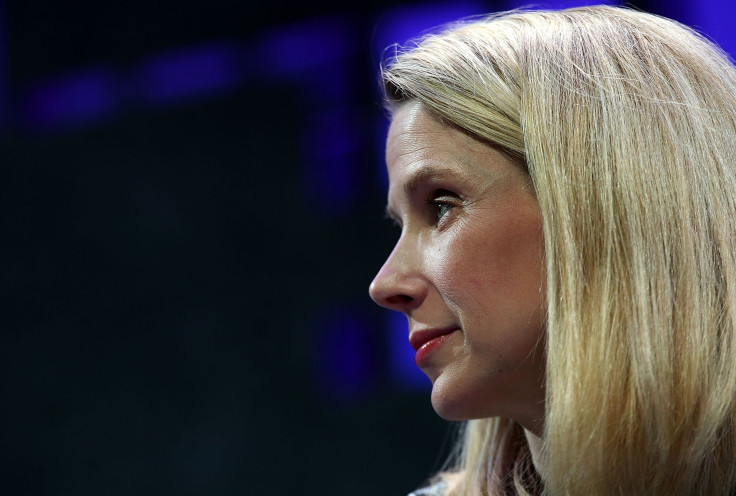Yahoo Inc. (YHOO) Q1 Earnings: Low Expectations Met, But Slide Continues

5:40 p.m. EDT: This story has been updated to include remarks from Yahoo CEO Marissa Mayer and Chief Financial Officer Ken Goldman.
Even when Yahoo gets it right, things stay wrong. The internet search and content company posted its first quarterly earnings of 2016 Tuesday, and the mixed results on display caused Wall Street investors, who expect the company to be sold soon, to shrug their shoulders.
Yahoo delivered revenue of $1.087 billion in the first quarter of 2016, hitting the target of $1.08 billion — which was 12 percent lower than the $1.23 billion earned during the same period last year. It posted non-GAAP earnings per share of 8 cents, ever so slightly up from the consensus estimate of 7 cents and down sharply from 15 cents in the same quarter of 2015.
But the company's costs also rose sharply, losses from operations widened, and overall, it posted negative net earnings, with a $99 million loss. The company's stock (NASDAQ:YHOO) slid slightly before the report Tuesday, to $36.33, from Monday's close of $36.52.
Because the money Yahoo earns from advertising comes from such wide spectrum of digital areas, its revenue streams can be broken out or tallied in a number of different ways: search versus display, mobile versus desktop, mavens – a portmanteau for revenues generated from mobile, video, native advertising and social media – versus non-mavens.
Either way, the majority of Yahoo’s revenue came from search, which brought in $348 million, after deductions accounting for the traffic it acquired from third parties like Mozilla. Last year, Yahoo earned $442 million in revenue from search, after deductions.
Display came next, with revenues totaling $380 million, minus paid traffic. Last year, it earned $385 million from display. Yahoo's display business has come under fire recently for failing to offer the rich targeting potential offered by competitors like Facebook. That criticism manifested itself in the balance sheets. Yahoo's price per ad fell 6 percent. Last year, the company posted just a 2 percent increase year over year in display revenue, despite a 29 percent increase in the number of ads sold.
During a conference call with investment analysts, Yahoo CEO Marissa Mayer attributed the decline to an array of issues, including its shift toward selling automated, or programmatic display inventory, which is cheaper, and the balance it's trying to strike between the high price of web video ads, and the temptation to increase the number of those ads it makes available to advertisers.
According to Mayer, nearly 70 percent of Yahoo's inventory is sold either programmatically, or at auction. "When we put extra supply in that market, it does add short-term price pressures," Mayer said. "But we think we have a handle on it."
At the end of last year, Yahoo’s top executives mentioned it would be looking to offload patents to raise revenue and shrink its costs by trimming its payroll. It went above and beyond with the latter, lowering the company's payroll by 21 percent. The company began layoffs in February, with several rounds of weekly cuts designed to trim up to 15 percent of Yahoo’s workforce. Its digital magazines, especially those not focused on news, finance, sports or lifestyle, were especially hard-hit, with the company’s food, beauty and travel sites all losing top editors and looking to get shut down. According to Yahoo CFO Ken Goldman, the layoffs were responsible for a majority of the decline in the company's operating costs.
Even if Tuesday’s report had been very different, it would not have changed the fact that a transformation is on the way for Yahoo. The company is mulling acquisition offers from suitors including Verizon Communications and YP, the digital successor to the Yellow Pages, and its board’s members are facing the prospect of being replaced en masse during a forthcoming proxy fight. Starboard Value, an activist hedge fund that has been demanding a shakeup at Yahoo since 2014, has pledged to install its own board of directors. Starboard owns less than 1 percent of Yahoo stock.
“They're going to feel the pressure to make sure they're doing the right thing for the shareholders,” Starboard CEO Jeff Smith told CNBC, saying that he believes Yahoo must look to sell itself for the highest possible price.
© Copyright IBTimes 2024. All rights reserved.











